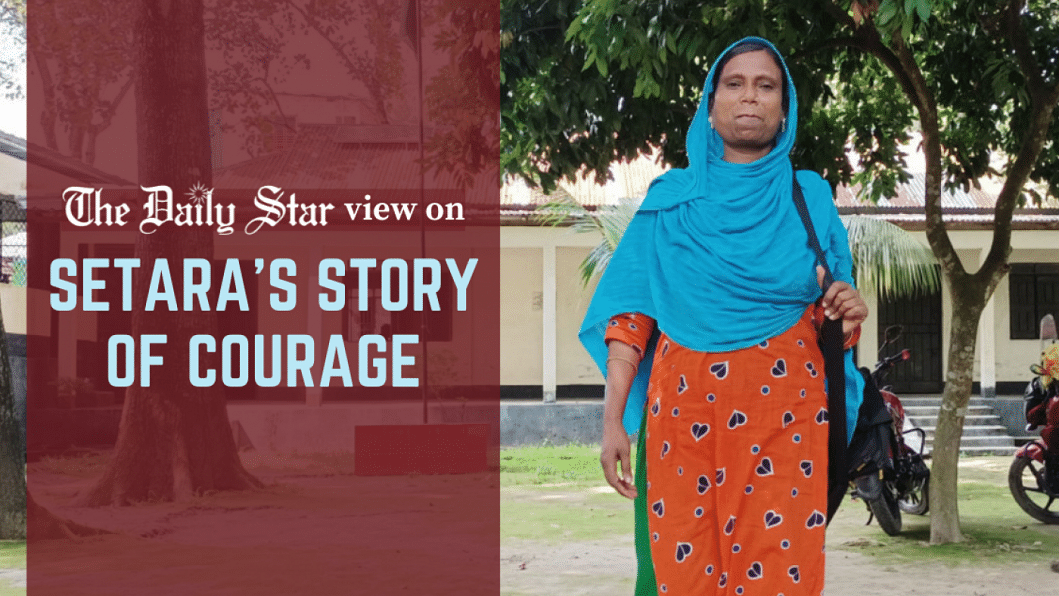An inspiring example of leadership

It is encouraging to learn of the story of a woman whose rise from a background of helplessness to be in a position to help others can be an example for countless people from similar backgrounds. Setara Begum, 37, comes from a small village in Lalmonirhat. And like many girls struggling with poverty and unhelpful social norms, her life, too, seemed headed to a destiny she didn't, or wouldn't, choose. According to a report, while in her eighth grade, Setara dropped out of school because of poverty, and after her father's death, was hurriedly married off. Her husband, known as Shamsu Pagla, was so called because of his mental illness.
She helps those in need to access government allowances and services, hears about their problems, and tries to solve them. She is like their "guardian angel".
Life after marriage was no less painful for her, with an ailing husband in constant need of care, their meagre earnings, and no house to call their own. All this would have weighed down any person of lesser strength. But not Setara. She decided to turn her challenges into an advantage, and she had a lifetime of lessons to guide her. She became a candidate for the reserved chair-member post in the Mogholhat union parishad. It was initially ridiculed, but soon she convinced her people with her courage and down-to-earth attitude, and so they financed her campaign. Today, she is a UP member, and a very sincere one at that.
Every day, she sets out from her home at dawn, covering at least five villages on foot before the day's end. She helps those in need to access government allowances and services, hears about their problems, and tries to solve them. She is like their "guardian angel" who lives among them. With her small honorarium as a UP member and her husband's disability allowance, they live a simple yet richly rewarding life. In a way, her past life of struggle and caregiving set the stage for her eventual role in the service of her community. She remains an inspiration not just for those similarly battered by life, but women with political aspirations as well.
In Bangladesh, the road to women's political participation and representation is littered with many obstacles. Only last month, a female Zila Parishad member candidate, while returning from an election campaign, was waylaid by five men and raped at gunpoint. The victim later said, "They raped me to stop me from competing in the election." This is just one example of just one kind of obstacle – sexual violence – that politically ambitious women have to face. Other challenges include smear campaigns, lack of support and security, the general preference for tokenism rather than representation, etc. Women are easier to target for political rivals, and we have a society that, for all its talk of equality and inclusion, is still not open to having women in decision-making positions.
Setara has shown how women's political empowerment is actually in the best interest of our society. We hope more people will be encouraged by her example.

 For all latest news, follow The Daily Star's Google News channel.
For all latest news, follow The Daily Star's Google News channel. 







Comments